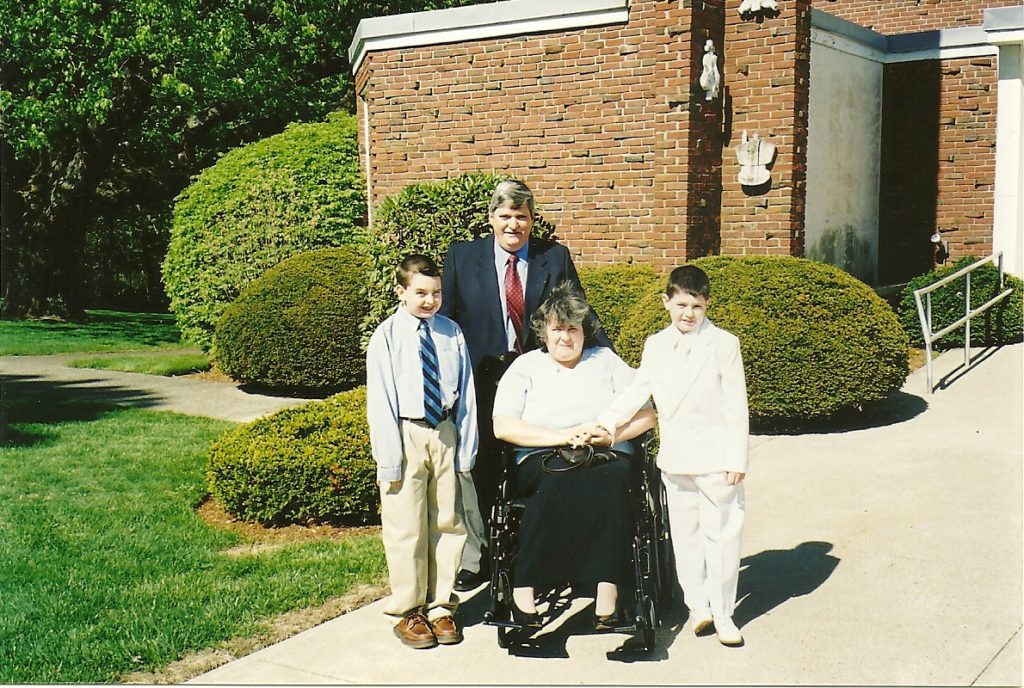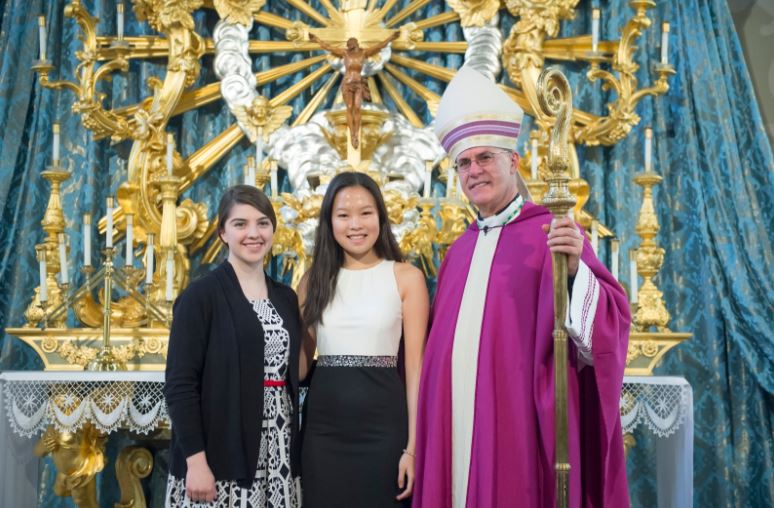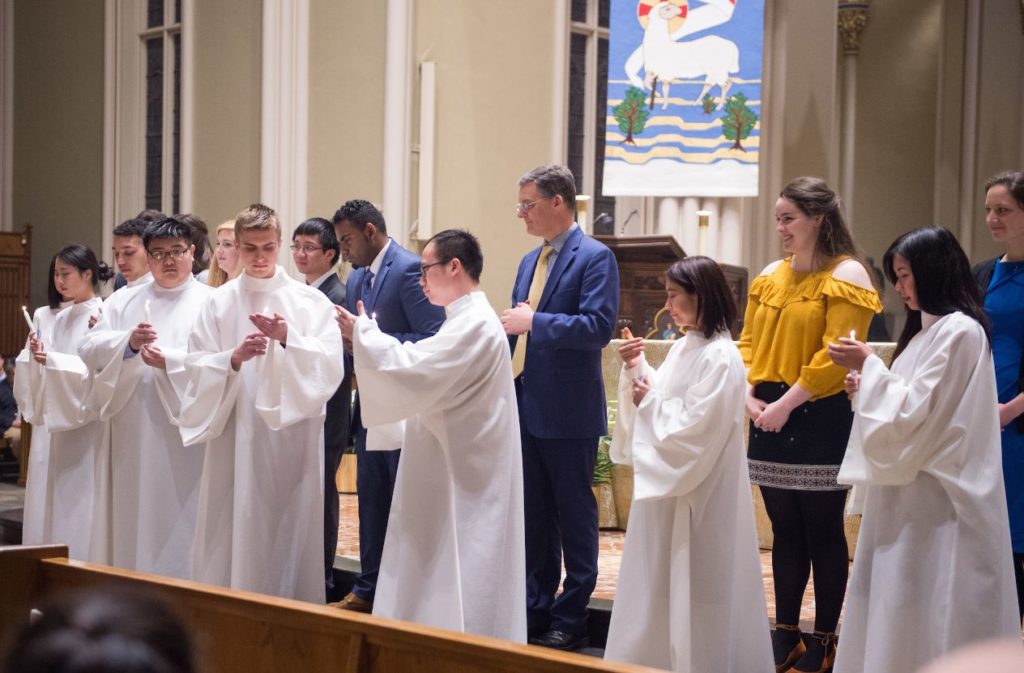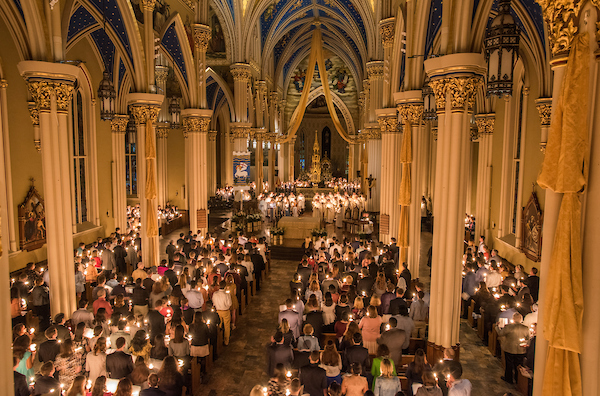Meghan Kozal, 2018-2019 Anchor Intern
“Bless us, O Lord, and these, I guess…”
“Did you just say and these, I guess?”
“Of course, that’s what the prayer is, isn’t it?”
“No, it’s thy gifts! Not I guess!”
The traditional Catholic prayer before meals can sometimes get a little lost on us in its ritual nature, as the Old English terminology had for my sister when she was younger. My own prayer before meals can often be hurried in my busy day-to day-life and even at times apathetic, as if I were actually praying “and these, I guess”. Recently, though, I was given the opportunity to be drawn out of the ritual motions and words of the prayer at the dinner table in Rungsted Kyst, Denmark.
This past semester I lived with a wonderful host family in the small coastal suburb of the capital, Copenhagen. My family included several host siblings: 10 and 14 year old sisters (Amalie and Victoria), 17 year old brother (Gustav) and, arguably my favorite, the small dog (Luna). One of my favorite parts of living with them was our hyggeligt nightly family dinner.
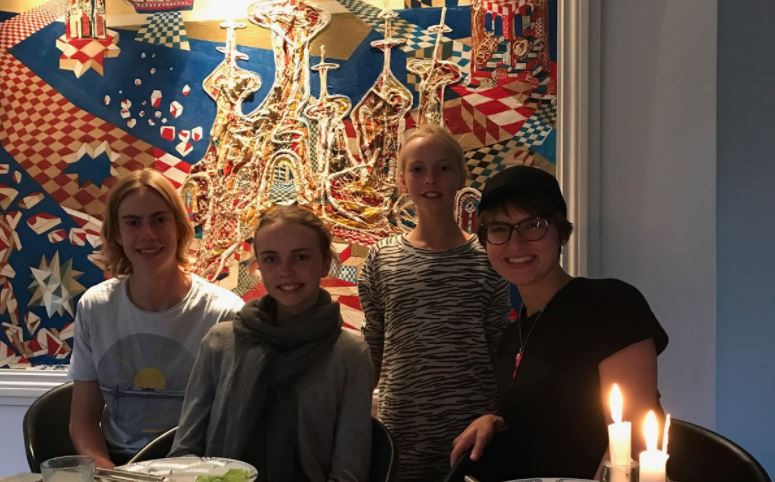
I was used to praying before meals, as I had always been taught to by my family, and it was something that I had continued to do at Notre Dame. My host family, though Christian, were not particularly religious and did not pray before meals. Being a guest in their house, I did not want to seem overly religious and make them uncomfortable, so I snuck in my prayer before our dinners while no one was looking. My secretive prayers continued for some time until my youngest host sister, Amalie, noticed and asked my host mom what I was doing, though she said it in Danish. My host mom asked me if I was in fact praying, laughing a bit at my shyness, and was surprised that so much time had passed with no one having noticed. After my host family found out that I always prayed before meals they would pause in serving the food when they saw me begin to make the sign of the cross. It was occasionally rather uncomfortable, as they stared at me in a bit of wonder and waited to continue what they were doing until I was done. I was happy, though, that I no longer had to sneak in my prayer and it really made me stop and think about the prayer I was saying, as well as make sure I remembered to pray it.
Nearing my last week with my host family in December, after I finished praying, Gustav asked me why I prayed before meals. I hadn’t realized what a mysterious thing prayer could be to someone who had never really experienced it in this way, as it had always been a part of my mealtime ritual. I told him that it was an act of thanksgiving. It was a recognition that I am blessed to have the meal sitting before me as well as the family surrounding me. In praying I am showing gratitude for all those whose labor went into the food reaching my plate while also praying that those who were not as lucky as me would be fed. Gustav’s response struck me in his immediate acceptance, as he said that he thought the whole family should begin to pray before meals along with me if that is what it meant.
I, like I think many Christians do, heard about missionaries converting people in foreign lands and had a longing to go out into the world and do these awesome deeds, but I hadn’t realized that in praying before meals in the tiny suburb of Copenhagen, Denmark, I truly was a missionary. Although I did not directly preach the words of the Gospels or bring my host family to Mass with me, in modeling a way that faith had moved me to reconsider a part of my daily life, the meal, I believe that I was able to show how my faith is one of gratitude and thanksgiving.
I realize now, though, that I left out an important part in my description of my prayer- that I was also praying with the gratitude for the space to be able to show my faith and for having been raised in a family and community that taught me the very faith I was able to demonstrate. I regret not having been more upfront about my faith from the beginning to my host family, as I might have been able to have the conversation about prayer and more with my host brother long before the eve of my departure.
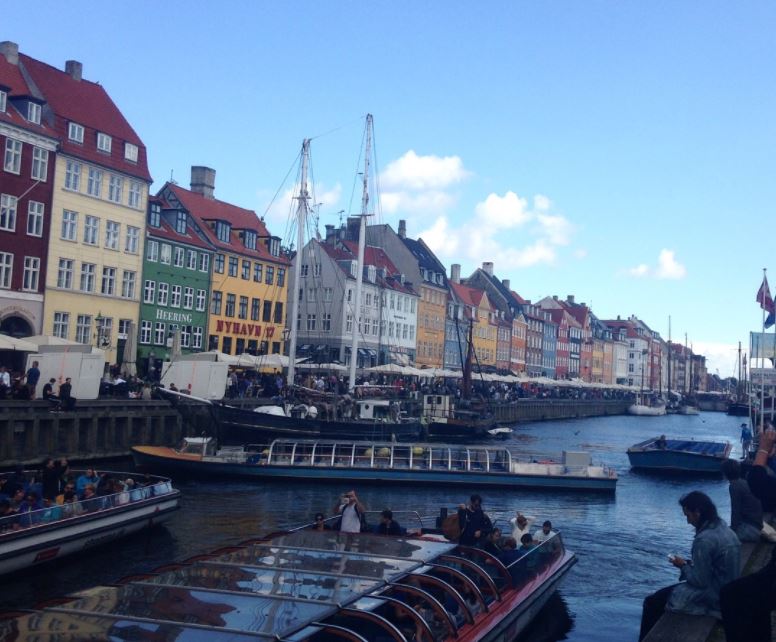
I don’t think that I will ever fully be able to see my mealtime prayer without this new lens of mission and purposeful gratitude, and I hope I continue to often find myself sitting at a dinner table with the choice to pray in secret or to profess my faith so that I do not forget the great blessing that is prayer.
Bless us, O Lord, and these thy gifts which we continue to receive, from thy bounty, through Christ, our Lord. Amen.

